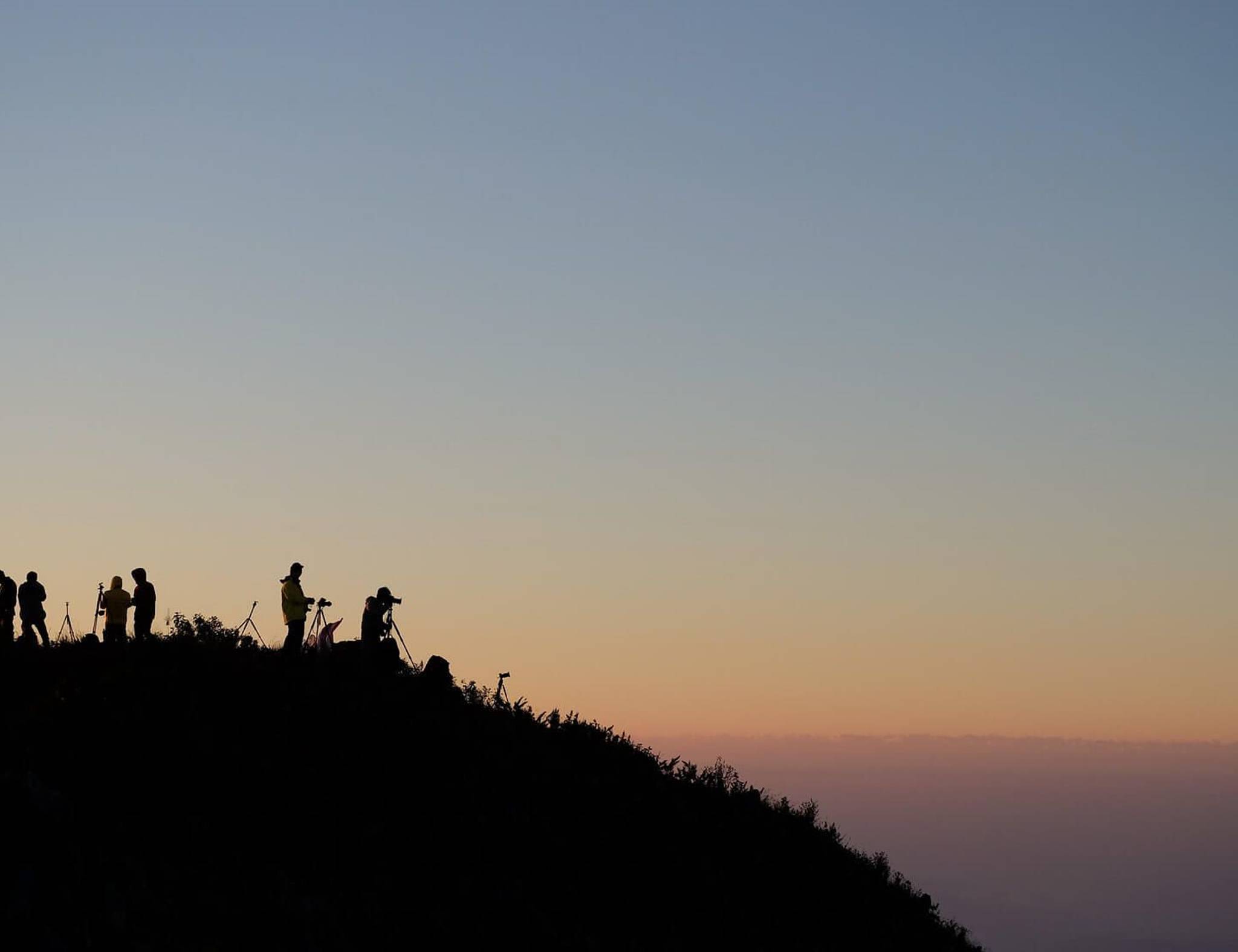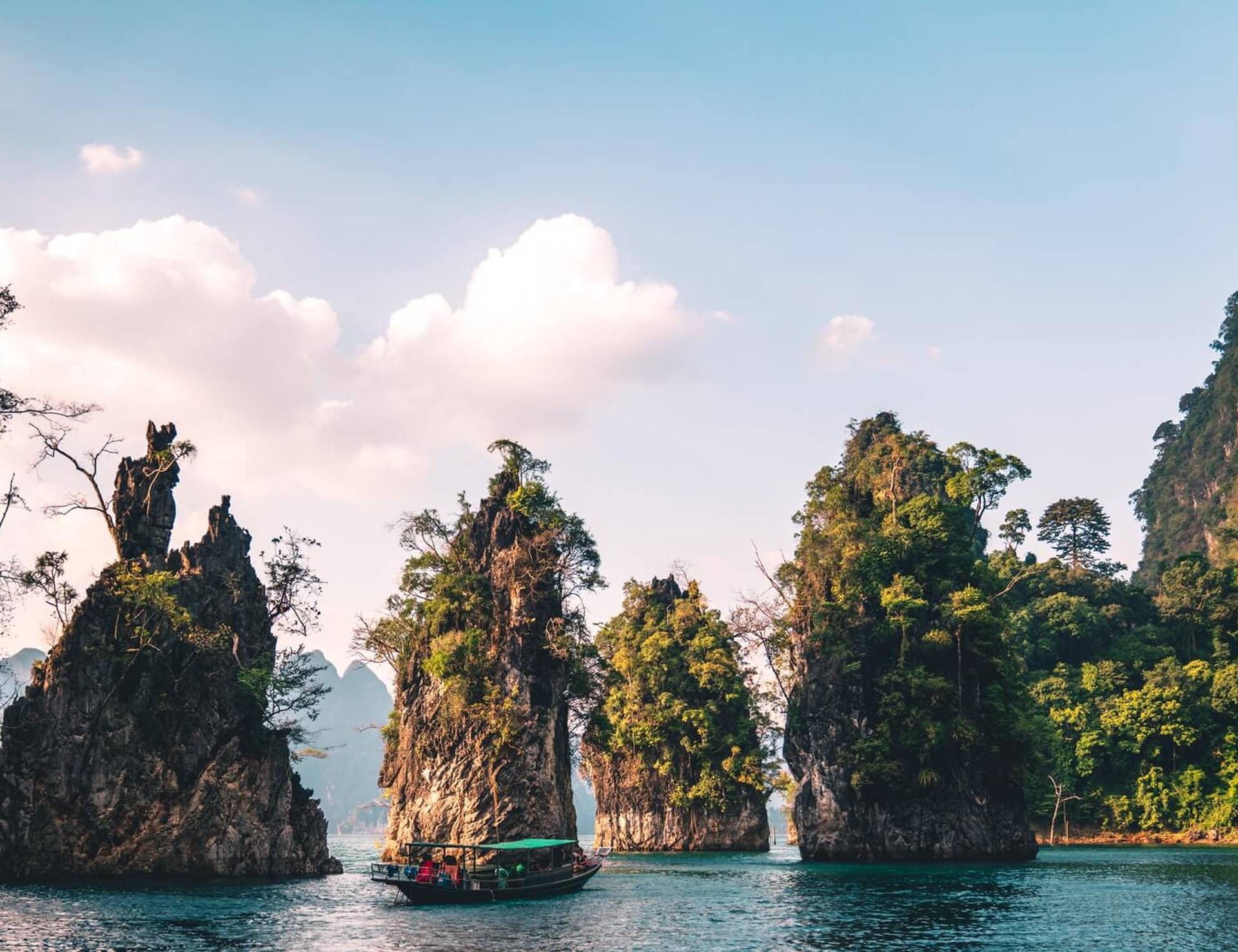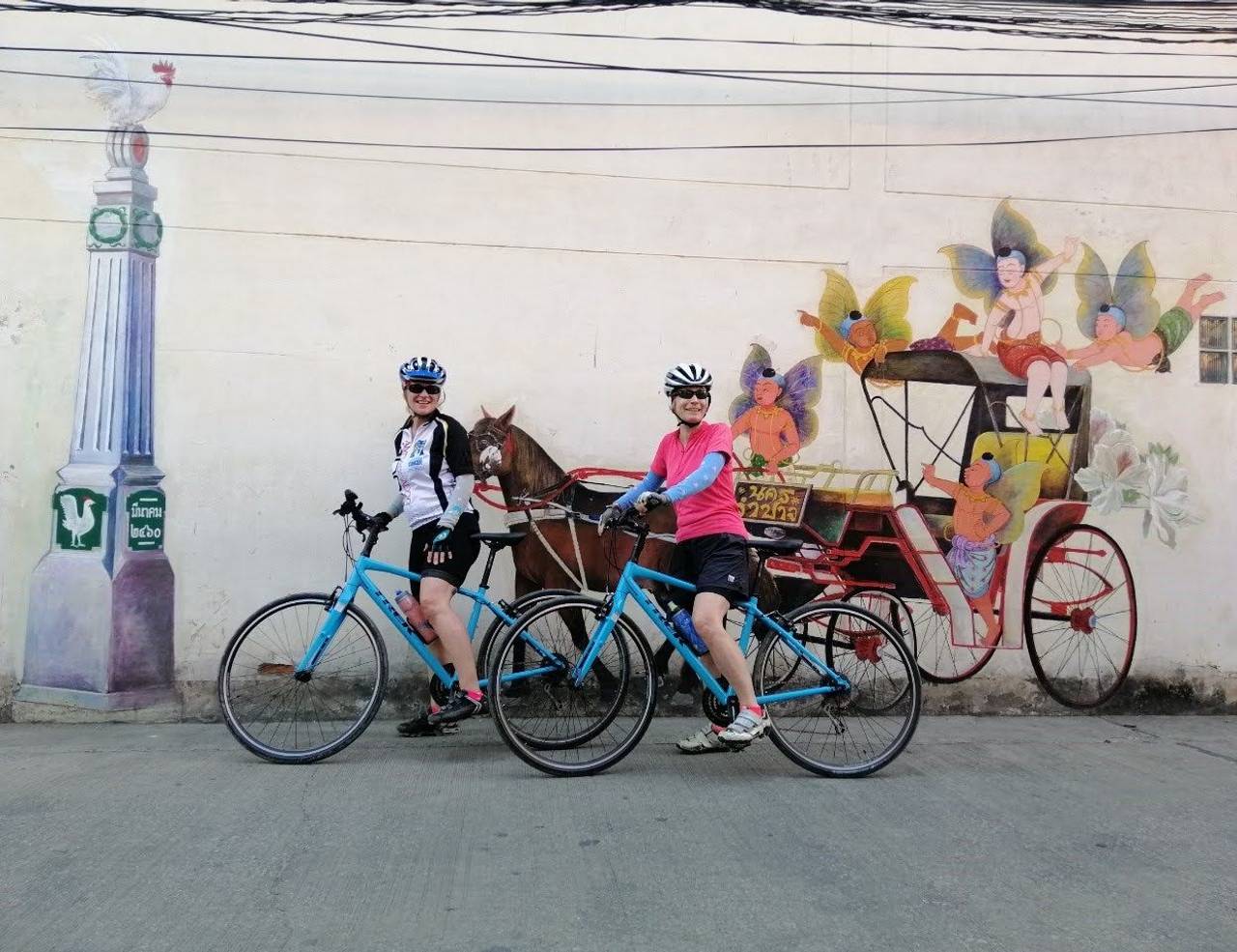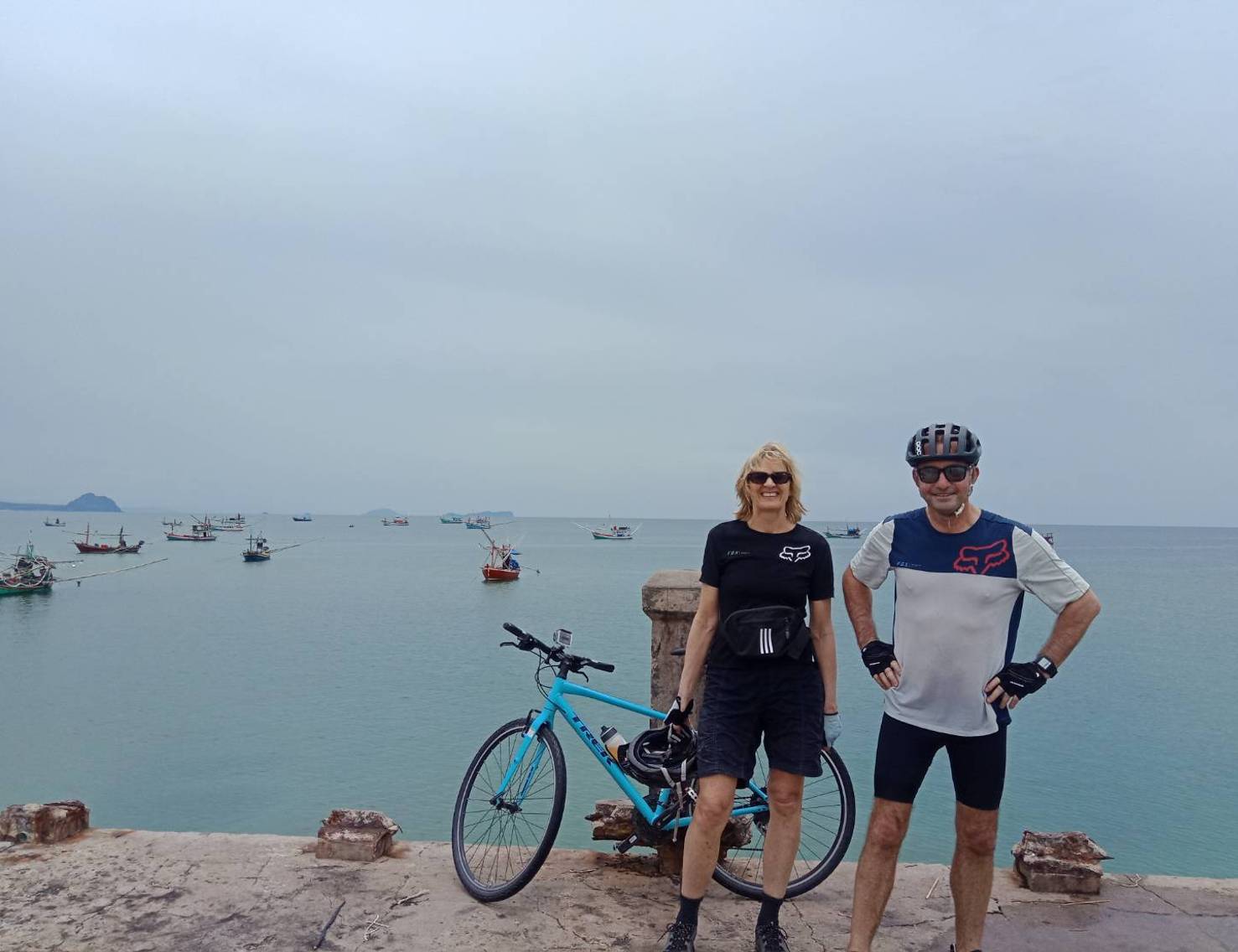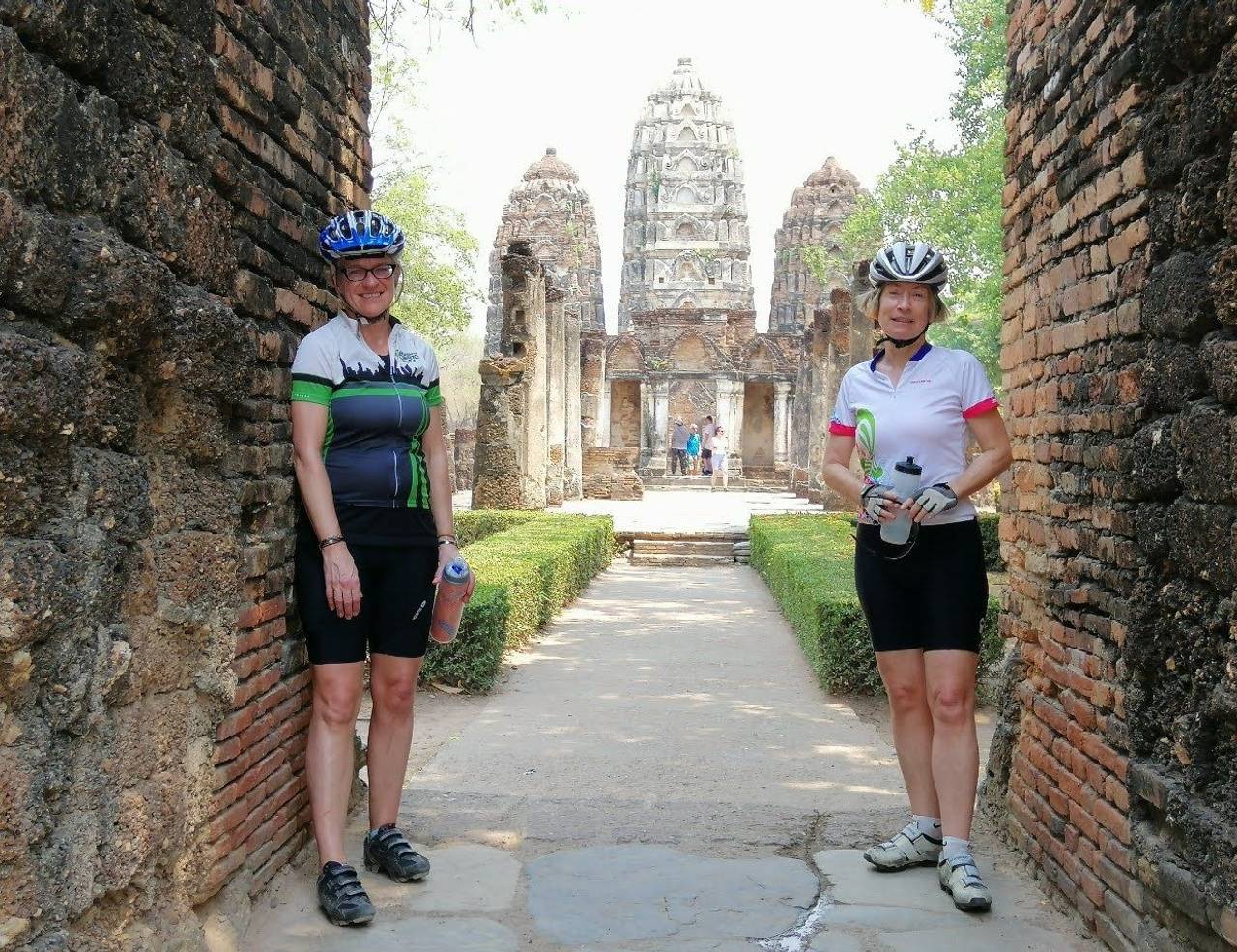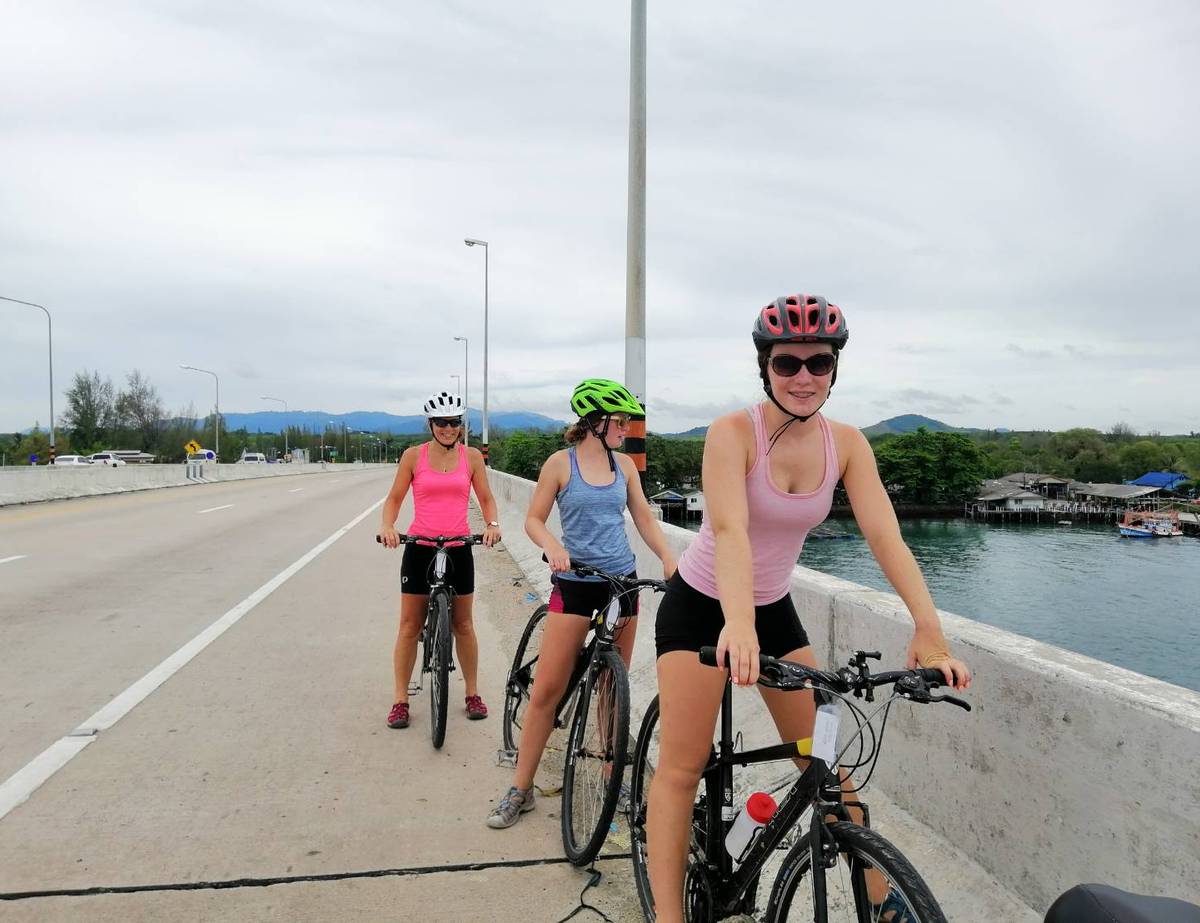
Table of Contents
Understanding Thailand
Topography — Thailand (officially, the Kingdom of Thailand) is a tropical country in south-east Asia situated between the latitudes 6° and 20° N and longitudes 98° and 105° E. The country is about the size of Spain and is shaped like an elephant’s head, with a broad northern hinterland and a narrow, elongated, southern coastal strip resembling an elephant’s trunk. The country has a diverse geography, with a mountainous north, flat central plains, and coastal south with a long shoreline. Dense tropical rainforests, carpets of velvet green rice paddies, stark limestone mountains, and beautiful sandy beaches fill the landscape of much of the country.
Fauna & Flora — Thailand is rich in biodiversity and is home to several endangered species, making it a vital region for conservation efforts. The country's lush forests provide habitat for iconic species like wild elephants, tigers, Malayan sun bears, and pileated gibbons. Thailand's diverse ecosystems also host an array of bird species, including the globally threatened helmeted hornbill and the endangered Siamese crocodile. With numerous national parks and protected areas, Thailand offers a haven for cycling enthusiasts and a crucial front for preserving its unique biodiversity.
Climate — Thailand enjoys a pleasant tropical climate characterized by high levels of precipitation throughout the year. The country's climate can be broadly divided into three seasons. The hot season, typically from March to May, brings soaring temperatures, while the rainy season, from June to October, features heavy monsoon rains, especially in the southern and western regions. The cool season, which spans from November to February, offers milder temperatures and lower humidity, making it a popular time for cyclists to explore the diverse landscapes, vibrant cities, and pristine beaches that Thailand has to offer. This climate diversity contributes to the rich flora and fauna found across the country, with ecosystems ranging from dense rainforests to arid savannas.
Economy — The country has a population of about 70 million most of whom enjoy a relatively good standard of living, though some parts of Thailand are markedly more prosperous than others and significant income inequality exists at the regional level. Thailand’s economy is dependent on exports of goods and services including cars, electronics, textiles, and tourism. The country has one of the lowest rates of unemployment in the world and among the highest per capita incomes in Asia. Its capital city, Bangkok is a hub of global business and finance with many of the world’s largest multinational corporations having their regional headquarters there.
Dreaming of Cycling in Thailand?
Explore our amazing bike tours in Thailand now!
Why Go Cycling Thailand?
Thailand presents a fusion of natural wonders, cultural treasures, and warm-hearted locals, making it a compelling choice for avid cyclists.
Here are five compelling reasons to contemplate Thailand for your cycling holiday:
-
Varied Landscapes — Thailand's landscape spans from picturesque coastal routes along the Andaman Sea to challenging mountainous terrains in the north, offering cyclists a diverse array of settings to explore.
-
Cultural Exploration — Cycling through Thailand allows you to immerse yourself in the rich tapestry of Thai culture, from ancient temples and vibrant markets to charming villages along the way.
-
Culinary Delights — Thailand is renowned for its delicious and diverse cuisine. Exploring the country on a bike allows you to savor authentic street food, regional specialties, and fresh tropical fruits, enhancing your overall cycling experience.
-
Rich Biodiversity — Thailand's natural habitats are home to a wide range of wildlife, from tropical birds to elusive jungle creatures, adding an element of wildlife exploration to your cycling journey.
-
Friendly Locals — Thai people are known for their warmth and hospitality, and you'll find plenty of opportunities to interact with locals, making your cycling experience even more enriching and memorable.
What are the Best Places to Cycle in Thailand?
Thailand beckons cycling enthusiasts with a tapestry of diverse landscapes and regions that make it a cyclist's paradise. Whether you're pedaling through scenic coastal routes, meandering past tranquil rice paddies, or navigating lush rainforests, Thailand provides an array of top destinations for cyclists seeking unforgettable journeys.
- Northern Thailand
The northern region, including areas around Chiang Mai, Chiang Rai, and Golden Triangle, is a favorite among cyclists. The mountainous terrain, cooler climate, and scenic landscapes make it ideal for both recreational and challenging rides.
Chiang Mai and Chiang Rai are cities about 200 km apart located in the mountainous north of Thailand. The region is inhabited by diverse hill tribes that make it one of the most culturally rich and colorful regions in Thailand. Chiang Mai is dotted with temples and ruins of historical structures, some of them as old as 1000 years. The city is surrounded on all sides by hills. Thailand’s highest peak, Doi Inthanon (2565m) is situated 100kms west of Chiang Mai. Chiang Mai is also home to some of the best elephant sanctuaries in Thailand. Chiang Rai has some fabulous Buddhist architecture and great nature trails in its vicinity. The Golden Triangle is the tri-junction of three countries - Thailand, Myanmar, and Laos. It is set amidst a serene landscape of coffee plantations, lazily meandering rivers, and green hillsides.
The terrain in this region is generally hilly, interspersed with rivers, and is great for people who love riding in the mountains. Biking in Thailand thus also offers you a chance to visit the borders of Myanmar and Laos too.
- Southern Thailand
The southern region, encompassing destinations like Phuket, Krabi, and the Gulf of Thailand islands, provides picturesque coastal routes with breathtaking ocean views, tropical beaches, and vibrant seaside towns.
Bangkok, Thailand's capital, serves as the launch point for cycling holiday in the southern part of the country. A bustling metropolis of close to 11 million people, it is known for its vibrant nightlife, beautiful Buddhist temples, and luxurious spas. Located in the southern part of the country, a cycle tour from Bangkok typically heads further south along its long, narrow coast, passing through beautiful beaches skirting the clear blue waters of the Indian Ocean, mesmerizing waterfalls, dense jungles, and quaint fishing communities.
Phuket is a mountainous island in southern Thailand that is famous for its seaside resorts. Thailand's southern islands, including Phuket and Krabi, offer coastal cycling routes with breathtaking views of the Andaman Sea. Explore picturesque beaches, lush jungles, and vibrant seaside towns.
The terrain in Southern Thailand is generally flat with the occasional hills.
What are the Best Cycling Routes in Thailand?
Thailand offers an array of cycling routes. Here are some of the best cycling routes in the country:
This northern route takes you through scenic mountain landscapes and lush countryside, passing by traditional villages and historic temples.
Highlights along the route include visits to traditional hill tribe villages, each with its own unique culture and traditions.
The terrain includes challenging ascents and descents, making it suitable for cyclists seeking both physical and cultural exploration. It's a fantastic way to experience the natural beauty and cultural diversity of northern Thailand.
A challenging loop in northern Thailand that covers Pai, Mae Hong Son, and surrounding areas, offering riders a chance to experience remote villages and stunning natural beauty. The entire loop can span approximately 600 kilometers.
Along the way, you'll be treated to awe-inspiring mountain scenery, serene countryside, and opportunities to explore traditional villages. The route is famous for its "Pai Canyon" and the tranquil atmosphere of Mae Hong Son.
Expect steep climbs and exhilarating descents as you navigate the winding roads that meander through the hills. The terrain is suitable for experienced cyclists seeking both physical challenges and unique cultural experiences.
You'll have the chance to interact with local communities, discover the distinct cultures of hill tribes, and appreciate the diversity of northern Thailand's landscape.
This route offers a mix of coastal cycling, serene countryside, and idyllic island landscapes. You can explore picturesque beaches, lush jungles, and charming seaside towns.
As you pedal along the Andaman Sea coastline, you'll be treated to breathtaking ocean views and the opportunity to relax on some of the most beautiful beaches in the region.
Along the way, explore one of Thailand's most renowned Khao Yai national park, pedaling along roads that lead through dense forests, waterfalls, and an array of wildlife.
The journey involves crossing to Koh Samui, which is typically done by taking a ferry from the mainland. The ferry ride adds an element of adventure to your cycling journey and allows you to experience the Gulf of Thailand from a unique perspective.
The terrain on this route is relatively flat, making it suitable for cyclists of various skill levels. The focus here is more on coastal beauty and island relaxation rather than challenging climbs.
Planning a cycling holiday in Thailand?
Dive into our curated Thailand cycling adventures today!
When is the Best Time to Cycle in Thailand?
Being located close to the equator in the northern hemisphere, the best time for cycling in Thailand is between October to March, with regional variations as described below:
- Northern Thailand - Chiang Mai, Chiang Rai, Golden Triangle
Northern Thailand, where you'll find cities like Chiang Mai, Chaing Saen and Chiang Rai, enjoys a cooler climate compared to the rest of the country. Consequently, the prime cycling season here spans from October to March. In December and January, it's worth noting that night-time temperatures may occasionally drop below freezing in certain areas.
The most favorable time of the year is winter, running from November through February. This period marks the dry season with cooler temperatures and minimal rainfall. The north typically experiences dry, rain-free conditions with temperatures in the mid to upper 20s.
March through May sees quite hot weather in the north, with temperatures reaching the upper 30s and low 40s. It's advisable to avoid trips north of Bangkok during this period.
June through October signifies the rainy season, often referred to as the "green season." In the north, the heaviest rains occur in August and gradually taper off in early October. Rainfall consists of brief yet intense tropical downpours, typically happening in the afternoon or evening, leaving cycling still feasible.
In summary, winter (November - February) is an excellent time to visit, while the summer months (March - May) are best avoided in the north. The rest of the year offers viable options for cycling adventures in the region.
- Southern Thailand - Bangkok, Krabi, Koh Samui, Phuket
Southern Thailand, characterized by its coastal and predominantly flat terrain, offers an enticing setting for cycling enthusiasts. The optimal cycle tour season in this region unfolds from November to March when the weather is consistently sunny and pleasant. Moving into April to June, one encounters the hot summer months, while July to October ushers in the rainy season, marked by substantial precipitation.
The most ideal period of the year falls during winter, extending from November through February. This timeframe is synonymous with the dry season, boasting cooler temperatures. Occasional scattered showers dot the landscape during this season, with temperatures in the low 30s.
March through May brings warmer conditions to the South, with temperatures experiencing only minor fluctuations throughout the year.
From June to October, the rainy season, often referred to as the "green season," prevails. The south witnesses the peak of rainfall in September and early October. Rainfall primarily comprises brief yet intense tropical downpours, typically occurring in the afternoon or evening, allowing for biking to remain feasible.
In summary, winter (November - March) offers the most favorable conditions for cycling in the South, while the remainder of the year provides viable options for cycling enthusiasts.
Thailand Visa Requirements
Travelers wishing to enter Thailand have two options: through an airport or overland. Regardless of the mode of entry, the same rules apply to all travelers. Citizens of countries that can enter visa-free will receive a 30-day entry stamp, while those with a Tourist Visa will receive a 60-day entry stamp. Travelers from countries eligible for a Visa on Arrival will receive a 15-day entry stamp and a visa at the airport.
To comply with the rules, travelers entering visa-free or applying for a VOA must present an airline ticket that departs Thailand before their initial entry period ends (30 and 15 days, respectively). Other travelers may also be asked by the airline to show proof of a departing flight.
When applying for a VOA, travelers must be able to demonstrate that they have 10,000 THB for an individual or 20,000 THB for a family. For those entering visa-free or with a Tourist or Non-Imm visa, proof of financial ability must be shown in the form of 20,000 THB and 40,000 THB, respectively. It's important to note that cash is the only acceptable form of proof of financial ability, and credit cards or bank statements do not count. Any major currency equivalent is acceptable.
Although the majority of travelers are not asked to show proof of financial ability, some travelers may occasionally be asked to do so at Immigration. Therefore, travelers should always be prepared to provide evidence of their financial ability.
Here is an excellent resource on Thailand visas that may be worthy to look at.
Vaccines and Medicines
Although there are no specific vaccinations required for Thailand travel by their local law, you are strongly recommended to meet with a medical provider to determine the vaccinations needed for Thailand. Your medical provider will give you specifics on which vaccinations for Thailand you are recommended to have based on your prior vaccinations and other health factors.
Our travelers normally don't do any special vaccination before visiting Thailand and we also don't recommend any particular vaccine.
Here is an excellent resource for recommended vaccinations for Thailand that may be worthy to look at.
Handy Info
Currency - The Thai Baht (code THB, symbol ฿ ) is the official currency and legal tender in Thailand. As of August 2021, 1 US Dollar equals 33 Thai Baht. Most ATMs will dispense only the Baht, and it is usually the only currency accepted at most business establishments. It is advisable that you carry sufficient Thai Baht with you to meet your expenses. The Baht can easily be exchanged with all major currencies at airports and designated money exchanges. Mastercard/Visa are accepted at larger business establishments.
Transport - Tuk-tuks are one of the most recognizable visual mascots of Thailand and are a convenient way of getting around in Thai cities. The city of Bangkok has an efficient public transport system, with the Skytrain, an elevated rail transport system being the most cost and time-effective way of getting around. Taxi cabs are easily available too. For traveling between Thai cities, rail and bus service is available while the major cities and tourist destinations such as Bangkok, Pattaya, Phuket, Chiang Mai, Chiang Rai, etc. are connected by air.
Language - Thailand is a linguistically diverse country with 62 officially recognized languages. However Thai is the most common language in the country. English is widely spoken and understood, especially in cities as it is taught as a second language in many schools.
Culture - Thailand is a constitutional monarchy, with the Thai king being both the head of the state and a Buddhist religious figurehead, and being thus invested with both political and religious authority, is held in deep reverence by the Thai people. Thailand does not have any official state religion and the free and fair practice of all religions is guaranteed by the country’s constitution. However, Buddhism is by far the most widely practiced religion with over 93% of the population identifying as Buddhists. Muslims, Christians, practitioners of folk religions, and small numbers of Hindus and Sikhs make up the remainder of the population. Religion occupies an important part in the everyday lives of most Thai people, especially in rural areas. Most rural settlements have at least one Buddhist temple where Buddhist monks reside and oversee the life cycle rituals of the community according to traditional customs. Certain regions have larger concentrations of specific religions. For instance, southern Thailand has a large Muslim population, while northern Thailand has a significant Christian presence. It is advisable to be respectful of local traditions and customs when traveling. It is recommended that you dress appropriately when visiting sacred places. Thai people are warm, welcoming, and hospitable, and often may not object to being photographed out of politeness. However, it is advisable to seek permission before photographing people. Avoid taking photographs of military establishments.
Appliances and Devices - The electricity supply voltage in Thailand is 220V at 50 Hz. Most countries in the world use electricity at 220-240V with the exception of North America and Japan where 100-120V is used. You should check the back of your device to see if it is compatible with the voltage before plugging it in. If not, you might need to use a voltage converter before plugging in your device into an electrical socket. Certain devices have converters built into them and may not require one. Most hotels in Thailand use Type A, Type B, and Type C sockets. Type A has 2 flat pins, Type B has 3 flat pins, and Type C has 2 round pins. If your device has a plug that is not compatible with these, you should carry an adapter with you.
Mobile Coverage - Thailand has good cellular coverage across the country with affordable tariffs compared to those prevailing in most western countries. You can use your mobile phone in Thailand to make calls if you have international roaming activated. You can also buy a new SIM card if you plan to stay longer. However, you may need to have your phone unlocked to install a new SIM card. This can be done at most mobile stores in Thai cities. AIS, Orange, TrueMove, Happy, and DTAC are the primary cell phone operators in Thailand. You can also buy a new smartphone for anything between USD 70-100 and have a new SIM card inserted into it for around USD 5.
Cuisine – Being a tropical country well-endowed with the bounties of nature, Thailand’s cuisine is rich, varied, and intricate. Rice is the most widely consumed cereal crop and forms the staple of Thai cuisine along with noodles. Pork and chicken are among the most widely consumed meats. Due to the proximity of the sea to most parts of Thailand, seafood is also widely consumed with fish, shrimps, prawns, crabs, etc. forming an important part of Thai cuisine. Soy and dishes made from soy are also popular. The coconut tree is a common sight all across Thailand and predictably, the coconut finds its way onto most Thai menus. If you are allergic to any of these foods you might want to inform your tour guide beforehand.
Time Zone– The Thai time zone is GMT+7.
Embrace the Bike Tour in Thailand
An expertly organized bike tour in Thailand provides a remarkable way to delve into the beauty of this nation. It grants a distinctive vantage point and a deeply immersive adventure, setting it apart from conventional travel experiences.
Art of Bicycle Trips, a pioneer in crafting curated cycling holidays for over a decade, offers expertly guided cycling tours in Thailand. Experience the pinnacle of comfort and safety with handpicked hotels, local cultural encounters, seasoned tour leaders, and a dedicated support vehicle.
READY TO CYCLE THAILAND?
Get started with your cycling adventure today!

